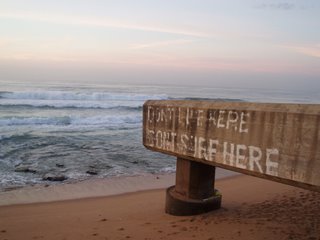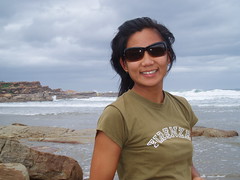
Now that I completed my first quarter at university yesterday (as in I finally handed in my final paper one hour after deadline, oops), the relief has been lifted off my shoulders and I can catch up on my sleep. Hopefully, second quarter will see that I prepare for my papers a little earlier so that I have more time for editing. It was a good paper writing bender despite the lack of exercise and sight of daylight.
My last paper was a study on Mozambique’s education policies as it relates to recent announcements of full debt cancellation by the International Monetary Fund (IMF), World Bank (WB) and the African Development Fund (AdF). The debt cancellation program is called the Multilateral Debt Relief Initiative and the three organizations have collectively selected … countries for eliminating their debt on yearly basis given that they maintain strict economic controls on their inflation, and budget deficits, prepare sustainable poverty reduction plans and a public expenditure management system. So for Mozambique, as of January 2006, the IMF and AdF wrote off $154 million USD of debt. This means that the funds formerly used for debt can go towards essential services such as the health care system and education. It is the breakthrough that organizations such as Make Poverty History and Jubilee South have all been campaigning for just this past year.
There are, of course, the disadvantages to this system. There is very little country or community consultation to many of the poverty plans and policies implemented in the country. The last word is always from the international institutions, mostly made up of representatives who have not been democratically elected. The whole meaning of democracy is lost when international powers can make decisions not determined by the people who are most affected. Secondly, governments must follow strict laws of an open market which does not allow countries to protect their own local industries. In the news, you’ll hear about industrialized countries that hold subsidies and tariffs on their own industries so that they can sell product to the global markets at below the commodity value. Where is the fairness when poor nations are forced to have no such government protection and try to compete with undercut prices from Canada, US, and Europe? In terms of education, there is the chance that IMF pressure will insist a more efficient management system without providing the resources for teachers and students to enhance their learning. On top of this, the government is working towards universal education for all. For example, teachers are unfairly evaluated for performance and paid accordingly when they are overworked (triple shifts), hold an average 60 children per class, poor classroom conditions, and very few teaching resources (textbooks, pencils, training, etc). Teachers forced to meet unreasonable demands with low wages undermines the quality of education. The promise of eliminating external debt will be one of the factors to eradicate poverty but even this can be impeded by conditions of international financial institutions.
